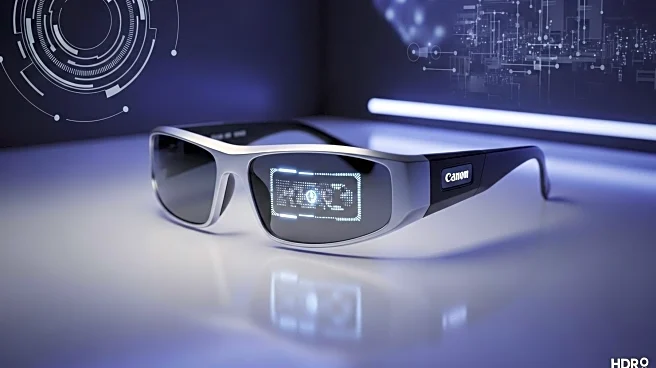What's Happening?
At the Meta Connect 2025 event, Mark Zuckerberg unveiled three new lines of smart glasses, including the second-generation Ray-Ban Meta, the Meta Ray-Ban Display, and the Oakley Meta Vanguard. These new products aim to leverage advancements in AI and wearable technology to enhance user experience. The Meta Ray-Ban Display glasses feature a built-in display for apps and alerts, complemented by the Meta Neural Band, which interprets hand movements for message composition. The Oakley Meta Vanguard glasses are designed for outdoor sports enthusiasts, offering high-resolution video recording and real-time integration with fitness apps. Despite a humorous mishap during a live AI demo, the event showcased Meta's commitment to expanding its AI technologies.
Why It's Important?
The introduction of these smart glasses signifies Meta's strategic push into the wearable technology market, aiming to integrate AI capabilities into everyday devices. This move could potentially reshape how consumers interact with technology, offering more seamless and intuitive experiences. The focus on sports and fitness applications highlights the growing trend of integrating health and fitness tracking into wearable devices, which could impact the sports industry and consumer health monitoring. Additionally, the emphasis on AI-driven features like 'conversation focus' suggests a shift towards enhancing communication in noisy environments, which could benefit users in various social and professional settings.
What's Next?
The Meta Ray-Ban Display glasses are set to launch on September 30, while the Oakley Meta Vanguard model will be available starting October 21. Meta's ongoing developments hint at an ultralight VR headset expected to debut by the end of 2026, raising anticipation for future Meta Connect events. As Meta continues to refine its AI technologies, potential reactions from competitors and tech enthusiasts could shape the future landscape of wearable technology. The success of these products may influence Meta's future strategies in AI and hardware development.
Beyond the Headlines
The event highlighted the challenges of live technology demonstrations, as seen in the AI demo mishap. This underscores the unpredictability of integrating AI into consumer products and the importance of robust testing and development. The humorous incident also reflects the cultural dimension of technology events, where unexpected moments can humanize tech leaders and foster audience engagement. As Meta advances its AI capabilities, ethical considerations around data privacy and user consent may become increasingly relevant, prompting discussions on responsible AI use in consumer devices.








